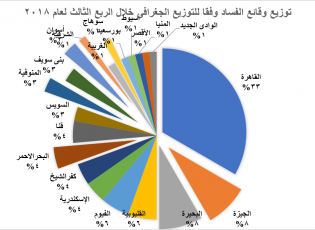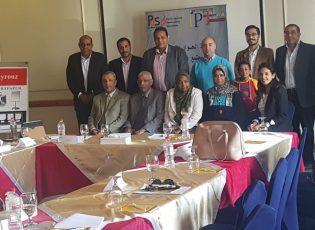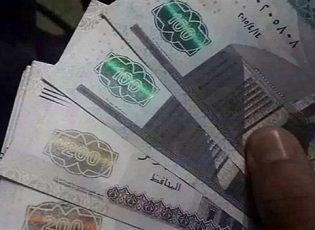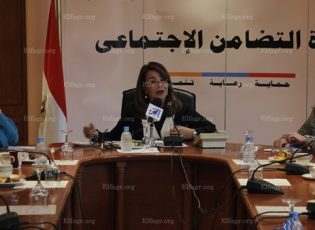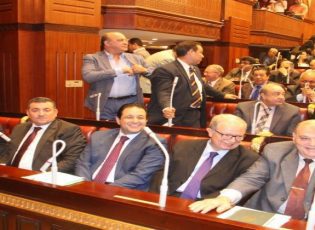alternative
The report indicated that the Ministry of Supply witnessed the highest number of corruption incidents during the month of February with 17 incidents, followed by the Ministry of Health with 10 incidents, then Agriculture with 7, then the Local Sector with 6, followed by Communications and Information Technology with 5 incidents of corruption, and the Ministries of Education, Interior and Finance recorded 3 incidents for each Of them, followed by the business institutions, higher education, trade and industry sectors with two incidents each, and finally the Ministries of Justice, Irrigation, Water Resources, Endowments, Youth, Sports, Social Solidarity, Culture and Economic Authorities came with only one incident.
At the geographical level, Cairo governorate was the highest in terms of corruption incidents that it witnessed with a score of 23, followed by Giza with 8 incidents, then Suez with 6, then Qaliubiya with 5, and finally Sharqia with 4 incidents. The report stated that the incidents under investigation come first among Corruption incidents during the month of February, where the largest percentage was recorded at 82% out of a total of 67 incidents, followed by the cases that were judged by 10%, then the incidents under trial with a score of 6 %, then the incidents that were not investigated ranked last, with a percentage of 2% of the total incidents.
Dr. Walaa Jad Al-Karim, Secretary General of Partners for Transparency, said that, as usual, the Ministry of Supply always ranks high in the monthly corruption analysis report. Because the institutional mechanism for oversight is very weak, there is a large gap between the amount of funds allocated to the Ministry of Supply and the poor conditions that its employees live in, which creates a gap and an environment conducive to the spread of corruption, as he put it, explaining that the supply inspectors get meager salaries that do not exceed, for example, two thousand and 500 pounds. While he watches the bakery owners allocated to them subsidize hundreds of thousands of pounds.
Gad al-Karim added to Al-Badeel that the spread of corruption is increasing due to the existence of a bundle of bad legislation, whether in graft laws or penalties, and in the end it does not lead to preventing corruption from the source, and then we find incidents are constantly recurring, stressing that committees and bodies combat Corruption did not succeed in its action; Because it is not independent and follows the executive authority, it is inconceivable that the national strategy for combating corruption, which was launched by the former prime minister, Engineer Ibrahim Mahlab, 2014, is headed by the Prime Minister, who is supposed to be subject to accountability and oversight, as he presides over the summit of the executive authority.
Regarding the role of the Administrative Control Authority in continuously uncovering corruption cases, the Secretary-General of the Partners Foundation for Transparency said that its role is positive and commendable, wondering about the role of other regulatory bodies and agencies, which number up to 20, and where are the Central Auditing Organization and the Illicit Profit Authority And the administrative prosecution, and others? He stressed that, in order to combat corruption, Egypt needs solidarity and coordination between all regulatory agencies.
And when the parliament’s role in issuing new legislation, Jad al-Karim stressed: “If the state wants to truly combat corruption, parliament should expedite legal legislation to protect whistleblowers and witnesses, and the freedom of information, in addition to amending the Criminal Procedures and Penalties Law, with regard to the judicial path of bribery and waste cases. Public funds, adding that under the current laws, reconciliation takes place in most cases of bribery and corruption, and the matter came to the point that the law gives the judge discretion to reconcile with the briber and the mediator and waive any punishment from them!
Parliament called for the necessity to re-study the laws regulating the regulatory agencies in order to activate their role, which begins with ensuring their independence so that they are able to perform their supervisory role without any embarrassment. Also, to expedite the issuance of the Local Administration Law, on which many rely on providing a legal framework that strengthens collective control and limits From the spread of corruption in local authority institutions, fearing the ambiguity surrounding the path of the final draft of the law, especially since the proposal submitted by Representative Anisa Hassouna to establish a coordinating body to combat corruption has not yet taken its legislative path, despite the urgent need to establish the body; Because it will play a pivotal role in coordinating anti-corruption policies and enhance integration between the various regulatory bodies.
Short link: https://pfort.org/en/?p=2080






